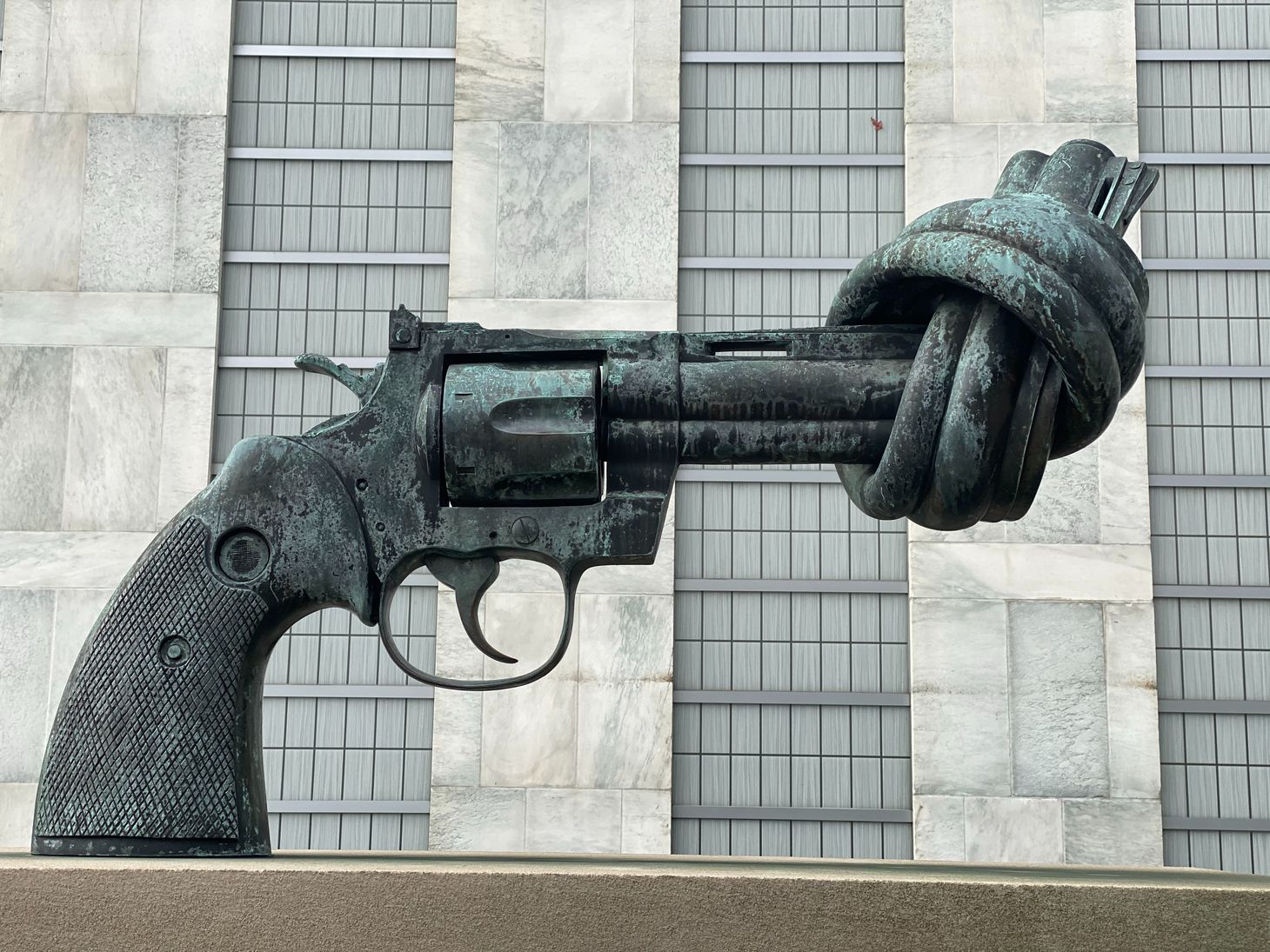Why, As A Christian, I Can Sympathize With Some Prayer Shaming
In the wake of any gun-related tragedy in the US, political actors offer insincere thoughts and prayers in order to avoid taking real action.

A couple of weeks ago, the NY Daily News, after yet another mass shooting in the US, posted a provocative cover blasting politicians for offering prayers instead of concrete action.
The cover featured tweets from Ted Cruz, Lindsey Graham, Rand Paul and Paul Ryan, offering their prayers for the victims and families affected by the shooting that occurred in San Bernadino, CA. The text accompanying the story excoriated those politicians for offering kind words but no solutions.
As latest batch of innocent Americans are left lying in pools of blood, cowards who could truly end gun scourge continue to hide behind meaningless platitudes
Incendiary, to be sure, but then people are being killed at an alarming rate. There has been, to date, almost no movement, on the part of many politicians, to curb the violence. As the old saying goes, “actions speak louder than words” and the silence on this subject has been deafening.
I believe strongly in the power of intercessory prayer. I make it a daily practice and believe it is one of the most important things that I can do. Being able to move the heart of God is a blessing and a truly beautiful aspect of our human condition. Having expressed that, I can understand the frustration being conveyed in this cover story. Without calls to take measures to prevent gun violence that mars the national landscape on a weekly and sometimes daily basis, the invocation of prayer rings hollow and disingenuous. Let us not forget that even Jesus himself criticized those who offered public prayers in order to be seen by others as pious.
And when you pray, do not be like the hypocrites, for they love to pray standing in the synagogues and on the street corners to be seen by others. Truly I tell you, they have received their reward in full. But when you pray, go into your room, close the door and pray to your Father, who is unseen. Then your Father, who sees what is done in secret, will reward you. And when you pray, do not keep on babbling like pagans, for they think they will be heard because of their many words. Do not be like them, for your Father knows what you need before you ask him. (Matthew 6:5–8)
There are also biblical references to those who profess to faith but do not back their faith up with deeds. The book of James speaks fairly extensively about this issue.
What good is it, my brothers and sisters, if someone claims to have faith but has no deeds? Can such faith save them? Suppose a brother or a sister is without clothes and daily food. If one of you says to them, “Go in peace; keep warm and well fed,” but does nothing about their physical needs, what good is it? In the same way, faith by itself, if it is not accompanied by action, is dead. (James 2:14–17)
In other countries, when faced with similar problems related to easy access to guns, leaders have reacted, with responses appropriate to the scale of such tragedies. In contrast, the current crop of US lawmakers appears to be nothing short of completely indolent. David Branes relates how in 1996, when a lone gunman in Dunblane, Scotland killed 16 five-year-old children and their teacher in a classroom, then took his own life, most handguns were subsequently banned in the UK. Though guns are used in crimes there, he states, they do not have the same threat of mass shootings. The same pattern played out in Australia after a shooting at Port Arthur in 1996. Gun laws were strengthened and there have been only 3 shooting sprees in Australia since, with only one that was seemingly random. My assumption of the politicians in those countries is that, if they offered prayers, they also offered of themselves, to carry out the will of a God who desires peace among people. Within Christianity, we refer to this desire to bring the Kingdom of Heaven closer as participatory eschatology. In this theology, we as believers are called to action, in order to further God’s will and make the world a better place.
The difference in political reactions between the US and the UK and Australia seems to be at least partially attributable to a powerful and well-funded gun lobby in the US. Shannon Coulter recently wrote an informational piece on the 46 US Senators who voted against universal background checks on gun purchases in the wake of the Sandy Hook Elementary School shootings. The piece contains the amount of campaign contributions 43 of those senators took from the gun industry. It is worth acquainting yourself with this list. I would like to believe that those with power and responsibility who trade our safety and security for campaign funds will find themselves facing increasing opposition from peace-loving people of all faiths. Especially as Christians, though, we need to call out those whose response to tragedy is “thoughts and prayers, but keep the checks coming.”
Treasure Hoard
Join the newsletter to receive posts in your inbox.



